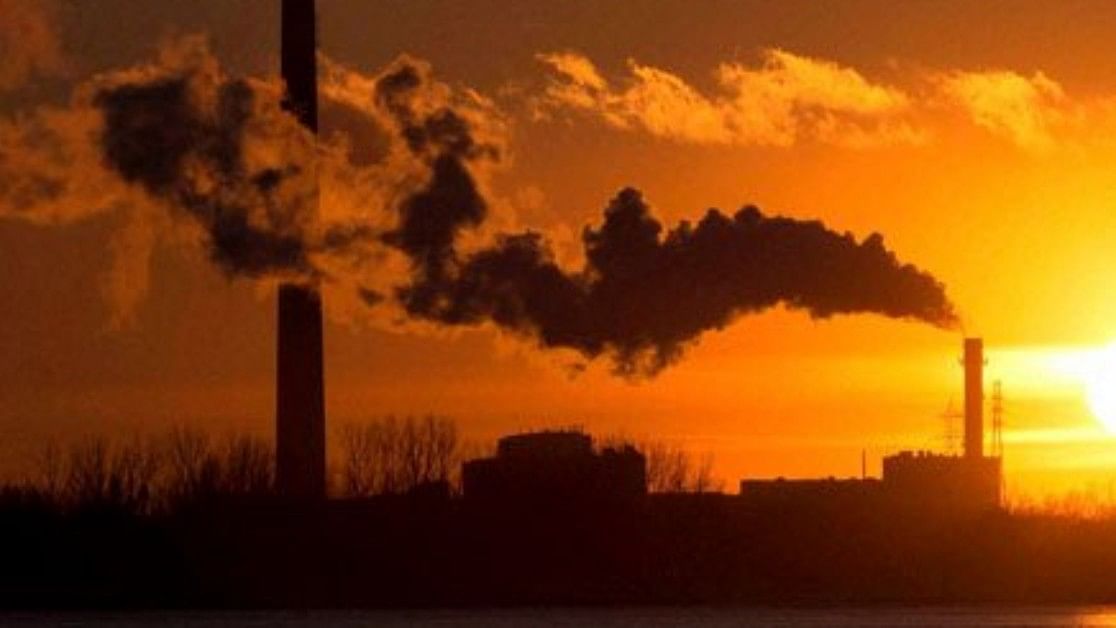
Representative image of CO2 emission.
Credit: PTI File Photo
The Decarbonisation India Alliance (DIA), spearheaded by the Society of Energy Engineers and Managers (SEEM) alongside several other organisations will be focussing its efforts towards reduction in greenhouse gas emissions (GHGs) across the energy sector in Maharashtra by inviting various stakeholder to be part of the alliance.
The climate crisis necessitates science-backed emissions reduction targets to cap global warming below 1.5 degrees Celsius, aligning with Indias commitment to net-zero emissions by 2070.
Achieving this goal requires a comprehensive decarbonisation strategy that harmonizes climate action with resilience-building measures, affecting various aspects of society, economy, and the environment.
This collaborative endeavor brings together leading industries, energy-
efficient product manufacturers, service providers, and policy organizations to accelerate Maharashtra’s journey towards a carbon-neutral future. The alliance comprises SEEM, Asar Social Impact Advisors, Carbon Market Association of India (CMAI), AMOS Group, Sonel, India Blockchain Alliance (IBA), Janitza, NGOs, Industries, Facilities, and others.
The alliance was officially inaugurated on Thursday during the SEEM India Energy Conclave and Awards 2023 in New Delhi.
Priya Pillai, Director, Asar said, “The DIA is a transformative initiative that aims to significantly reduce Maharashtra’s carbon footprint and pave the way for action by engaging industry stakeholders, particularly in the energy sector. The alliance is poised to drive substantial reductions in
GHG emissions for Maharashtra and other states. Through collaborative efforts, innovative solutions, and sustainable practices, we will not only lower emissions but also create a model for sustainable development that can be replicated nationwide. This alliance signals a collective commitment to a greener, cleaner, and more sustainable future for all.”
Maharashtra's greenhouse gas emissions have been on the rise, with per capita emissions increasing
at a compounded rate of 3.38% from 1.56 t CO2e/capita in 2005 to 2.40 t CO2e/capita in 2018, slightly lower than the national average. In 2019, the state's total greenhouse gas emissions reached 23.42 million tons.
To address this challenge, the government has outlined plans for emission reduction, with a significant focus on the energy sector, responsible for approximately 72% of the state’s total emissions, while the remaining 28% arises from waste and vehicular emissions. Within the energy sector, emissions are distributed across various categories, including Public Electricity Generation, Transportation, Captive Power Plants, Industries, Agriculture, Commercial, and Residential segments, with fugitive emissions originating from fuel production.
R Jayakumar, President, SEEM, emphasized: "DIA is a game-changer to accelerate Maharashtra’s journey towards net-zero emissions. It is an all-encompassing framework to coordinate, collaborate, and catalyze efforts in this direction.”